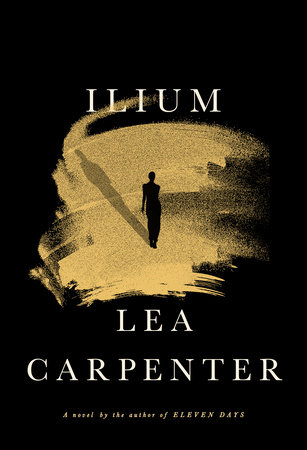Set in the dark world of international espionage, Lea Carpenter, who has strong family ties to Palm beach, does it again with her latest gripping novel, Ilium, which was just released on January 16. From London to Mallorca, Croatia, Paris, and Cap Ferret: the suspenseful story features a young woman who unwittingly becomes a perfect asset in the long overdue finale of a covert special op, an unexpectedly poignant story of a faux art dealer, CIA operations, and lavish lifestyles.
Also the author of two other novels, Eleven Days and Red, White, Blue, Carpenter has been coming to Palm Beach as long as she can remember. She often visits her mother and sister, while Carpenter prefers a more low-key lifestyle in New York, often lecturing at Columbia. Her favorite photograph features herself at age 4 with her father in the garden of the very home her family had rented many years on Pendleton.
“I actually started writing books right after he died,” she said about her father, who held highly esteemed role in the military. Carpenter imagines that the characters and stories she created was possibly adjacent to the work he was in. “Retrospectively you can see from my previous book how Ilium is the third of a trilogy, taking you back to the roles of the military and the complex roles played.”
Her father also loved Greek mythology, a major theme that hangs over Carpenter’s novels, with references to the Iliad. “But besides the connections to my childhood memories, I hope that Ilium can be picked up as sexy kinetic read,” she said.

Below is an excerpt from her latest novel:
“Could she feel them?
The two sets of eyes on her, that day in Trafalgar Square, one belonging to a young man on a skateboard, the other to an artist painting watercolors by the statue of King George IV. Or were there more than two sets, maybe there were four, maybe more. How many people were watching her that day and what were they looking for, or, guarding her against. And was it only men or was there a woman watching, too, usually there is a woman as women are less likely to elicit suspicion. What did they see in her. Whatever it was, it was something she had failed to see in herself, some singular mark of significance, something that made her uniquely valuable. And so, as she boarded that bus in Central London that day, the same bus she boarded every even slightly rainy day at that time in her life, she had no idea she was being watched. The only thing on her mind was hunger, and she was chastising herself for skipping breakfast then wasting time at work, as a result of which she was, at that moment, late to lunch. She was asking herself if she was the only person in the world who ate alone most days and when and if that would change. She was running casually through a familiar list of things she knew she could improve in her life. At the top of that list was, be less boring, followed closely by, take new risks. She boarded the bus and, as always, took any window seat she could find, preferably at the back, where no one would bother her. She was a creature of habit, part of the problem with that list. As the bus pulled into traffic, she looked back and could see a small crowd gathering on the steps of the National Gallery, reminding her of another thing she was missing. She added to the list, learn more about the world.”
From ILIUM © 2024 by Lea Carpenter. Excerpted by permission of Alfred A. Knopf, a division of Penguin Random House LLC. All rights reserved. No part of this excerpt may be reproduced or reprinted without permission in writing from the publisher.




